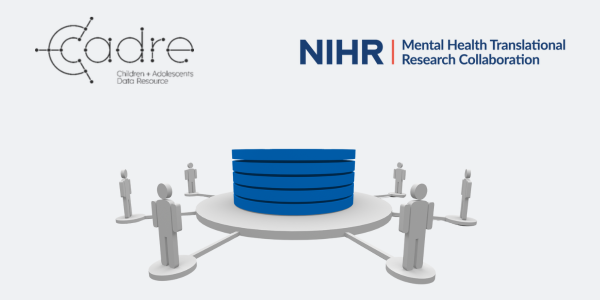News
NIHR Oxford Health Biomedical Research Centre: New resource helps researchers access information on children and young peopleApril 2025
Read

The NIHR Mental Health Translational Research Collaboration’s (MH-TRC) Mental Health Mission (MHM) Children and Young People’s Mental Health workstream, is working with the University of Cambridge to roll out a new resource which helps researchers access information on children and young people to inform studies.
Children and Adolescents Data Resource (CADRE) links together local National Health Service (NHS), social services and school databases, compiling a large amount of data from different organisations, making it easier for researchers to access relevant anonymised information and healthcare practitioners to provide better care.
CADRE is currently available in Cambridgeshire and aims to expand its reach across Greater Manchester in the future.
Recently, the NIHR MH-TRC MHM Children and Young People’s Mental Health workstream hosted a stakeholder event, organised in collaboration with University of Cambridge’s CADRE team.
The event, held at the Imperial War Museum North in Manchester, brought together clinical, data, technical, information governance and PPIE colleagues from across organisations including University of Manchester, Manchester University Hospitals NHS Foundation Trust, Pennine Care NHS Foundation Trust and NHS Greater Manchester Integrated Care Board.
Click here to read the full article on the NIHR Oxford Health Biomedical Research Centre website.
FAIR TREATMENT: Federated Analytics and Artificial Intelligence Research across Trusted Research Environments for Child and Adolescent Mental HealthOctober 2024
Read

Negative aspects of a young person’s life can lead to poor mental health. However, services are stretched so often intervene late, leaving young people to suffer with longer lasting or more severe problems.
Mental health problems are on the rise in the UK, and young people don’t get the vital help they need early enough. The good news is that improvements in machine learning technology could make it possible to create digital tools that will help practitioners find those people who really need support earlier on – making sure they’ll receive the best help when they need it. De-identified data already being routinely collected by services working with children and young people can be useful when creating these digital tools but using it in the best way has its challenges. To help find solutions, The FAIR TREATMENT (Federated analytics and AI Research across TREs for AdolescenT MENTal health) project set out to begin addressing the main three issues: Linking data from different regions, creating a legal, ethical, and acceptable governance framework for its use, and making sure that people whose data we would potentially be using fully involved with the project.
Click here to read the blog post on the DARE UK website and read the full report from the Sprint Exemplar here.